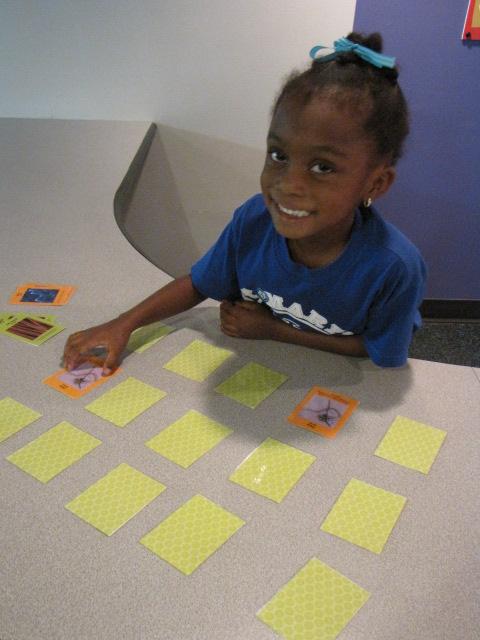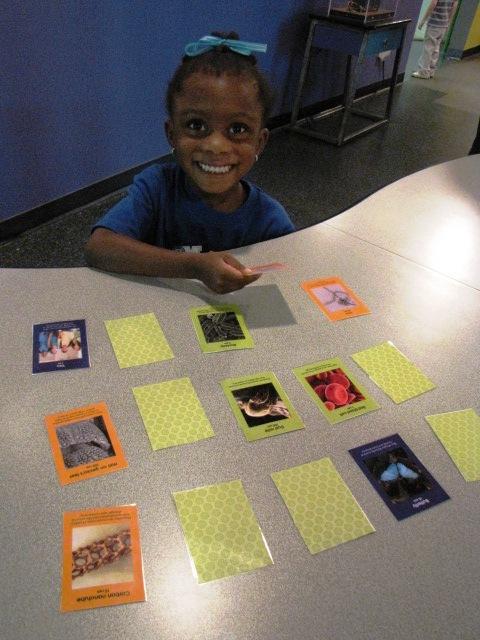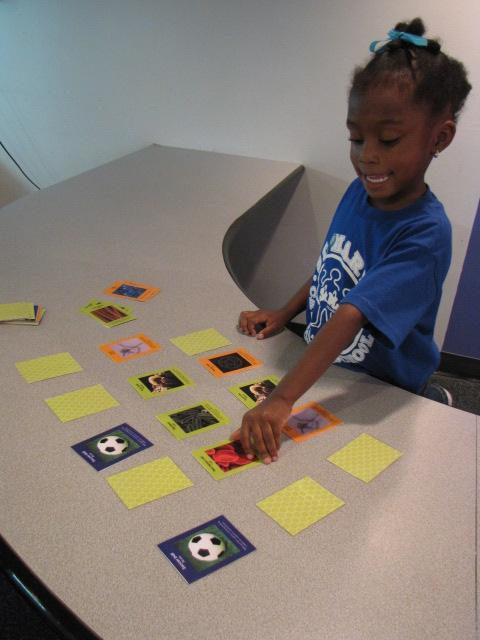DESCRIPTION
"Macro, Micro and Nano Memory" is a memory game that teaches visitors about the macroscale, microscale and nanoscale, the objects within those scales and the way we measure these objects.
DESCRIPTION
"Macro, Micro and Nano Memory" is a memory game that teaches visitors about the macroscale, microscale and nanoscale, the objects within those scales and the way we measure these objects.
TRAINING VIDEOS
OBJECTIVES
BIG IDEA
Size matters: things in the world come in different sizes.
LEARNING GOALS
Distinguish between the macro-, micro- and nanoscales.
Discover what types of objects are found in each scale.
Understand the units of measurement which are used for each scale.
Understand that there are many scales in the world, some which we can’t see with our eyes.
NANO CONTENT MAP
Nanometer-sized things are very small, and often behave differently than larger things do.
Credits
Children's Museum of Houston
Developed for the NISE Network with funding from the National Science Foundation under Award Numbers 0532536 and 0940143. Any opinions, findings, and conclusions or recommendations expressed in this product are those of the authors and do not necessarily reflect the views of the Foundation.
Creative Commons Attribution Non-Commercial Share Alike 3.0 United States (CC BY-NC-SA 3.0 US).
View more details

NISE Network products are developed through an iterative collaborative process that includes scientific review, peer review, and visitor evaluation in accordance with an inclusive audiences approach. Products are designed to be easily edited and adapted for different audiences under a Creative Commons Attribution Non-Commercial Share Alike license. To learn more, visit our Development Process page.



